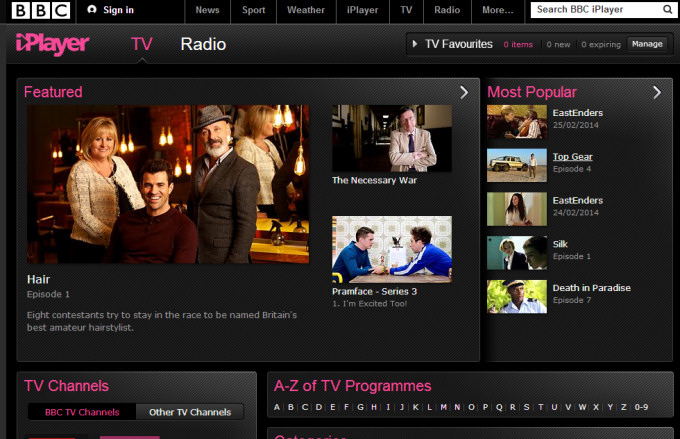
You can watch almost anything on catch-up: soaps, documentaries, dramas, cartoons and films. And because services such as The ITV Hub only take a few hours to update, you could watch the latest installment of The X Factor not long after it’s been on ITV 1.

How can I cancel? If you’re absolutely sure you no longer need a licence, you can formally let TV licensing know. Although there’s no legal obligation to do this, it says doing so will prevent an increasing number of letters coming your way.
- Cancel payment first. If you pay by direct debit you can cancel it by filling out TV Licensing’s contact form. Tell it you no longer watch TV and confirm your current address. You’ll also need to cancel your direct debit with your bank. If you pay with a TV Licensing payment card, you’ll need to call 0300 555 0286.
- Then fill out the declaration. Everyone who no longer requires a TV licence – including those who pay in cash at certain stores or Post Offices, who don’t need to do the above – can fill out a No Licence Needed declaration form. After this, keep your confirmation email from TV Licensing as proof.
- TV Licensing may visit. Once you’ve cancelled, you might find you get a visit from TV Licensing to check whether you actually do need a TV licence – it says these inspections find one in five households do. If you do need a licence, you’ll need to pay the full licence fee, and you could risk prosecution plus a fine of up to £1,000 (or £500 if you live in Jersey, or £2,000 in Guernsey).
Is this legal? Yes, you don’t need a licence so long as you are not watching live TV or using iPlayer and are only watching on-demand or catch-up on other services. However, TV Licensing says its figures show less than 2% of people only watch catch-up TV – so don’t cancel your licence unless you are absolutely sure you don’t need it.
Quick questions:
What if I watch live TV online?
The rule is if you are watching live TV or using iPlayer you’ll need a licence. It makes no difference whether you’re watching on a mobile, tablet, laptop or good old fashioned set in the corner of your living room.
How will they know if I watch live TV or iPlayer online or not?
It’s a very good question, and indeed there are some who believe the BBC is trapped in a corner by this. If it were to start charging people who watch the odd bit of iPlayer online, it would be like the record companies who prosecute 14-year-olds for a few illegally downloaded tracks. We believe the BBC wont know unless people tell them which is why they send out sales staff knocking doors & these are to be ignored, close the door on them without saying a word.
If I have a smart TV and only watch on catch-up do I need a licence?
Only if you’re watching iPlayer, so technically no if you only use other catch-up services. But proving it will be nightmarish, especially if your TV is connected to an aerial or satellite dish and is capable of receiving a signal. So you may find yourself in a tricky situation. We must point out you are innocent until proven otherwise so the BBC would need to do this, basically impossible if you have nothing to do with the BBC.
Do I have to let TV Licensing into my home?
Enquiry officers (sales staff working under target based commission) do not have any legal powers to come into your home unless they have a search warrant from a magistrate, or sheriff if you are in Scotland. They have an implied right under common law to come to your front door and let you know they are there. Our advice at TVLR is to never talk to them, never answer or confirm anything to strangers at the door.
If you refuse them entry they will have to leave, but BBC TV Licensing may then use other methods such as a warrant from court, this is impossible if you stick to zero communication. Those you read about having warrants issued on them have all communicated with BBC TV Licensing at some point, mostly their door to door sales staff who have incentives to lie.